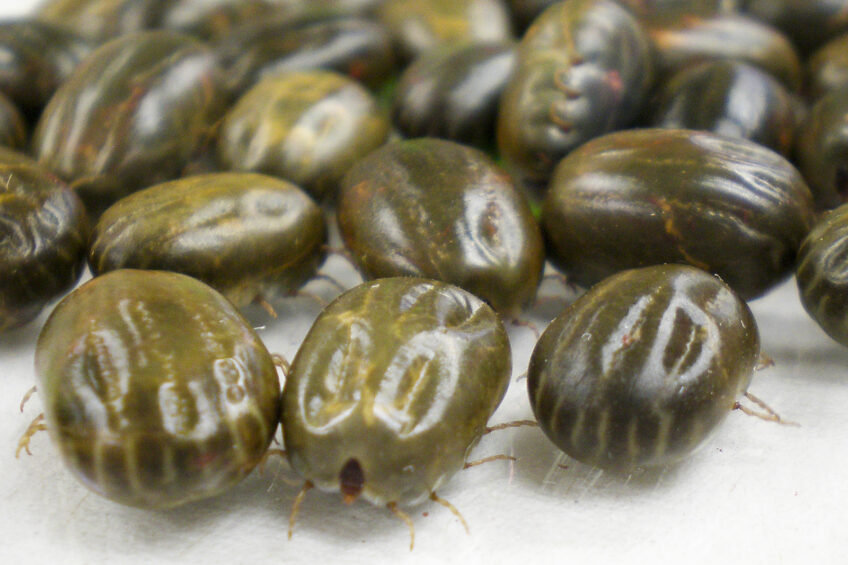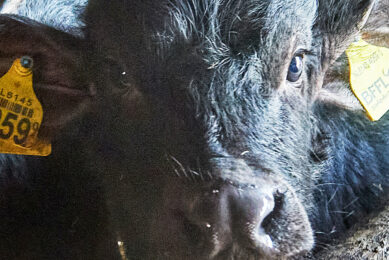New vaccine may control cattle ticks

A new vaccine developed by Agricultural Research Service (ARS) scientists with the U.S. Department of Agriculture (USDA) can help prevent a reinfestation of cattle fever ticks in the United States.
The economic impact of cattle fever ticks, including the southern cattle fever tick, Rhipicephalus (Boophilus) microplus, was so severe in the late 1800s that the U.S. Department of Agriculture started an eradication program in the early 1900s to eliminate the deadly disease bovine babesiosis, which is transmitted by this parasitic pest.
Although cattle fever ticks were declared eradicated in the United States in 1943, today they are still common in Mexico and can hitchhike on stray livestock, white-tailed deer, and other wildlife that cross the Rio Grande River into Texas.
New vaccine developed
Insect physiologist Felix D. Guerrero and his colleagues made a significant discovery while sequencing the complicated, huge cattle tick genome, which contains about 2.5 times the DNA of the human genome. Guerrero and his fellow scientists developed a recombinant tick aquaporin protein vaccine and partnered with the Brazilian Agricultural Research Corporation (Embrapa) to test the vaccine’s ability to protect cattle against infestation.
Holstein trial shows good results
Molecular biologist Renato Andreotti and his team at the Embrapa National Center for Beef Cattle Research in Campo Grande, Brazil, put animals infested with a known amount of cattle tick larvae into two pens. One group was vaccinated with the aquaporin vaccine and the other group was not vaccinated. Researchers compared the number of adult ticks produced on each vaccinated and unvaccinated cow. “In two trials, we saw a 75-percent and 68-percent reduction in the number of ticks on vaccinated 1-year-old Holstein calves,” Guerrero says. “This demonstrated that the aquaporin protein shows promise as an antigen in cattle vaccines to help prevent cattle fever tick infestations.”
Patent received on new vaccine
“Our research goal is to provide tools for U.S. ranchers to help control cattle fever ticks and prevent reinfestation of the United States,” Guerrero says. “This new vaccine is one more step toward meeting that goal.” ARS has received a patent on the aquaporin protein vaccine and on another tick vaccine tested at the same time in Brazil. The agency is working with an animal health company, looking at the feasibility of producing a commercial aquaporin vaccine.
Source: January 2016 issue of AgResearch Magazine.
Join 13,000+ subscribers
Subscribe to our newsletter to stay updated about all the need-to-know content in the dairy sector, two times a week.










